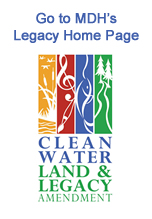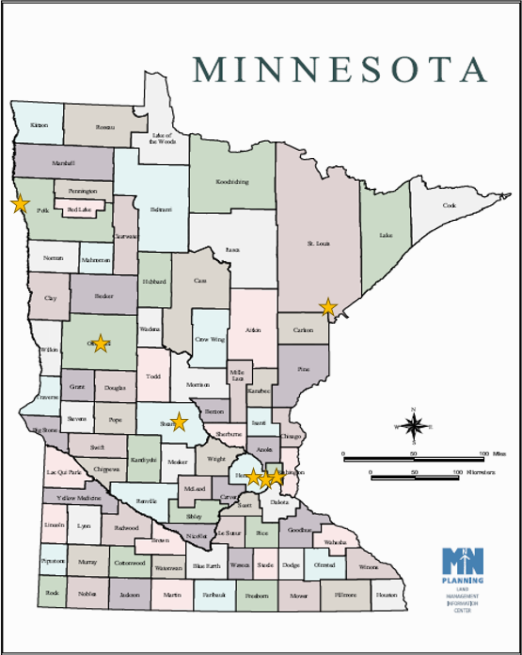Clean Water Fund: Contaminants of Emerging Concern (CEC)
MDH Legacy Initiatives
- Clean Water Fund Home
- Contaminants of
Emerging Concern - Groundwater Protection Initiative - Accelerated Implementation Grant
- Groundwater Restoration and Protection Strategies (GRAPS)
- Pathogen Project
- Private Well Protection
- Source Water Protection Planning and Grants
- Water Reuse
Related Topics
Environmental Health Division
Outreach and Education Grants
Project background
The Minnesota Department of Health (MDH) partners with local governments or organizations to increase public awareness about contaminants of emerging concern (CECs). These grants can be used to interact with the public on topics such as contaminants in Minnesota waters, the health effect of contaminants, pathways of containment exposure, and contaminant sources. Organizations that receive these grants include local and regional units of government, non-profit organizations, and professional water resource organizations. Projects funded by these grants have focused on water protection and stewardship, pharmaceutical take back programs, household hazardous waste reuse or disposal, and reducing chemicals in the environment through personal behavior change.
Project details
MDH awarded $199,615 through seven grants between 2012 and 2013 throughout the Twin Cities Metro area and greater Minnesota.
2012
In 2012, MDH awarded four grants. More information on each project is available on the Outreach and Education Grants 2012 page.
- Ce Tempoxcalli: A bilingual, culturally-aware education and outreach booth about CECs was created by this cultural and community-based organization for the 9th Chalchiutlicue Environmental Justice Summit at Mother Earth Fest.
- Central Minnesota Water Education Alliance (CMWEA): Two additional media ads and educational materials about CECs, especially targeted at youth, were created by this central Minnesota coalition to accompany the four ads they’d already created.
- Otter Tail County Public Health: In partnership with three other counties, this local public health agency promoted prescription drug take-back and hazardous waste collection programs in order to protect local drinking water sources.
- River Keepers: This Minnesota non-profit studied how they could decrease toxic household chemicals and pharmaceuticals in the Red River of the North.
2013
In 2013, MDH awarded three grants. More information on each project is available on the Outreach and Education Grants 2013 page.
- Clean Water Fund (Minnesota chapter): The local chapter of this national non-profit is creating a committee of water system representatives to discuss collaboration when dealing with CECs.
- Friends of the Mississippi River: This non-profit dedicated to protecting the Mississippi River in the metro area surveyed public opinions on triclosan, a toxic chemical found in soaps and body products, and created educational outreach materials about the chemical.
- Western Lake Superior Sanitary District: This treatment facility is creating an outreach toolkit to educate the public about proper storage and disposal of pharmaceuticals, pesticides, and mercury. The toolkit is available for local government agencies and non-profits to use to create customizable, professional-quality outreach materials.
Project uses
By providing grants to local organizations throughout Minnesota, activities have been focused to address issues around CECs that have been specifically defined for that area. Working with local partners through the grant process has allowed us to communicate with the greater Minnesota public in a more targeted and effective manner. In addition, we continue to evaluate and improve our communication practices to meet the needs identified through these projects.

